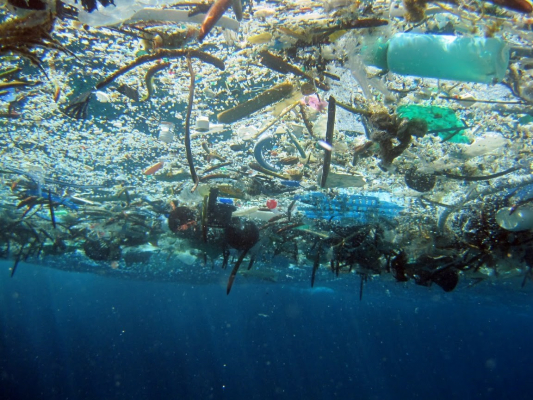Experts gather for second marine debris workshop
This summer, Hawaii will host the second stage of an international and multi-disciplinary work programme that aims to understand and address the threat to cetaceans from marine debris.
Man-made ocean debris includes plastics, abandoned and lost fishing gear, glass, metal and wood. These materials pose several different threats to marine mammals. Ingestion and entanglement cause immense suffering and, although the effects of micro-debris are less obvious, scientists are assessing the scope for micro-plastics to absorb and then transport pollutants into the bodies of animals.
A range of IWC initiatives are already addressing specific aspects of the marine debris threat. For example an entanglement response programme was launched in 2011 and has so far trained over three hundred and fifty national nominees, developing effective response capabilities in parts of the world where none previously existed. A very different example is the long term IWC Pollution Project, established in 1995 and now using mathematical modelling to predict the impact on cetacean populations of pollutants including PCBs and micro-plastics.
The two latest marine debris workshops aim to bring together all aspects of the issue. The first event was science-led, and sought to assess the nature and extent of the problem for cetaceans. A key recommendation was a requirement for individual IWC members to report debris interactions annually so that an accurate global picture can be developed.
This second event will focus on policy and management. Many organisations are working on issues of marine debris and ocean health at international, national and local levels. The Hawaii workshop in August will assess existing laws, initiatives and strategies. Potential collaborations will then be identified which can use the IWC’s scientific expertise and international reach to best effect, to improve the conservation outcomes for cetaceans and for marine life generally.
The workshop will take place in Honolulu from 5-7 August.
To read the report of the first Marine Debris Workshop in 2013, click here.

